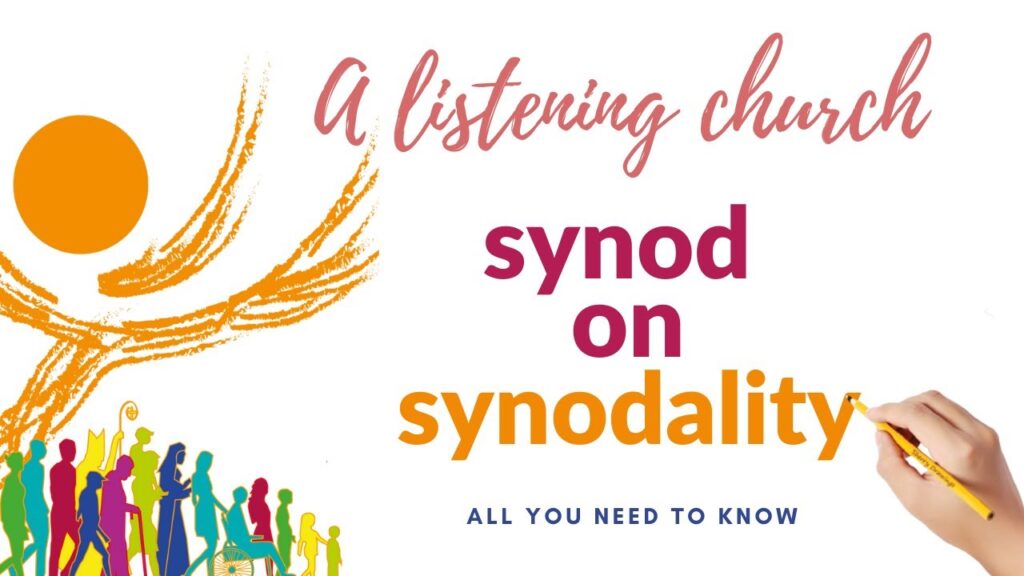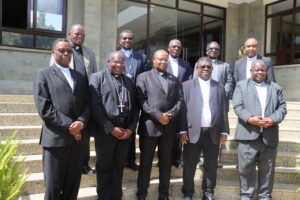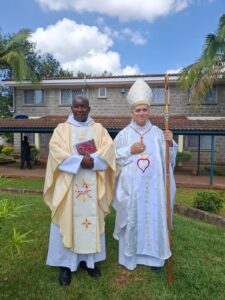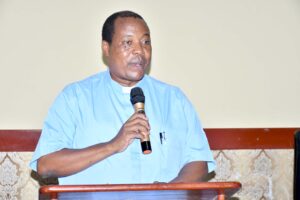AMECEA: African Church Serious with the Ongoing Synod, “Synodality is Alive,”: Church Officials Say

Sr. Jecinter Antoinette Okoth, FSSA
Some Church officials from Africa have affirmed that the entire continent has been serious with the ongoing synod on synodality which commenced three years ago, saying the spirit of synodality is “Alive” in the continent.
At a webinar organized by the Association of Member Episcopal Conferences in Eastern Africa (AMECEA) in partnership with the Association of Consecrated Women in Eastern and Central Africa (ACWECA) the Pan-African Committee for Communication (CEPACS), and in collaboration with the African Synodality Initiative (ASI), Bishop Emmanuel Adetoyese Badejo of Oyo Diocese in Nigeria pointed out that the people of God in Africa are eager to move forward with the spirit of synodality even after the second session and not make it “another event that just comes and goes.”
In his opening remarks on Thursday, August 29, during the online session, the Prelate highlighted that “The bishops in Africa are taking the synod seriously since the African continent is the future of the Church and that synodality has been part of the African essence.”
According to the Bishop who doubles as the president of CEPACS the webinar that was themed ‘How to be a synodal Church, responsive to the call to conversion: A reflection on the second Instrumentum Laboris,’ the webinar was an opportunity to reflect prayerfully and brainstorm on possible concrete steps that need to be taken to ensure “Synod on synodality becomes a continued process of renewal, transformation, recollection, and restoration of trust within the Church and with society.”
As the Church reflects on the hands-on application of living synodality, the Prelate said, “It is time to search for concrete ways of making the Church in Africa less bureaucratic and more relational.”
Additionally, he continues “It is time for the Church to realize the dream already expressed by the second Ecumenical Council of the Vatican of making synodality particular to the life and mission of the Catholic Church that identifies herself as a communion of the Baptised with Christ and with one another enjoying harmony in diversity as the people of God strive to fulfil the mission of Christ in the world.”
On his part, the Secretary-General for the Association of Member Episcopal Conferences in Eastern Africa (AMECEA) shared his reflection on how the Church in Africa is living Synod on Synodality saying the spirit of synodality is “Alive” in the continent.
“As we read and reflect on the Instrumentum Laboris for the upcoming second session, let us journey together, aware that the Synod on Synodality is alive in the continent of Africa,” Fr. Anthony Makunde told over 90 participants who were following the session online.
According to Fr. Makunde, the feedback from the local churches, which served as the basis for the Instrumentum Laboris for the second session highlighted how the Church in Africa is already living the spirit of synodality at various levels.
Fr. Makunde who is a delegate for the XVI Ordinary General Assembly of the Synod of Bishops and one of the experts tasked with the responsibility of facilitating the synodal journey underscored that the Church in the Eastern African region has adopted the slogan “The Synod on Synodality is Ongoing.”
He noted that the planned sessions, studies, and consultations at the universal Church level have inspired the ongoing sessions at the parish, diocesan, and national levels where established structures of the Synod on Synodality including contact persons, synod task forces, and synod committees at various levels of the local Church, “are actively responding to the issues raised, many of which are not doctrinal, in the spirit of synodality.”
He revealed that several parishes and dioceses have developed strategies to “Improve the structures of participation in the Church, the needs of youth in local environments are being looked into and Churches are making better use of available means of communication, including digital technology for evangelization.”
Other developments he said, “There are enhanced pastoral management tools, parishes, and dioceses have improved structures and avenues for listening and accompaniment and the Small Christian Communities (SCCs) are closer to those with special needs, including the elderly and the poor.”
The cleric acknowledges that the synod methodology, which calls for wider participation from church members, “has been an effective tool in identifying both the successes and gaps that hinder the Church Family of God from journeying together.”
Fr. Makunde appreciated that as the universal Church embarks on a synodal journey, the Church in AMECEA is celebrating the climax of the Golden Jubilee of Small Christian Communities which promots synodality at the grassroots.


